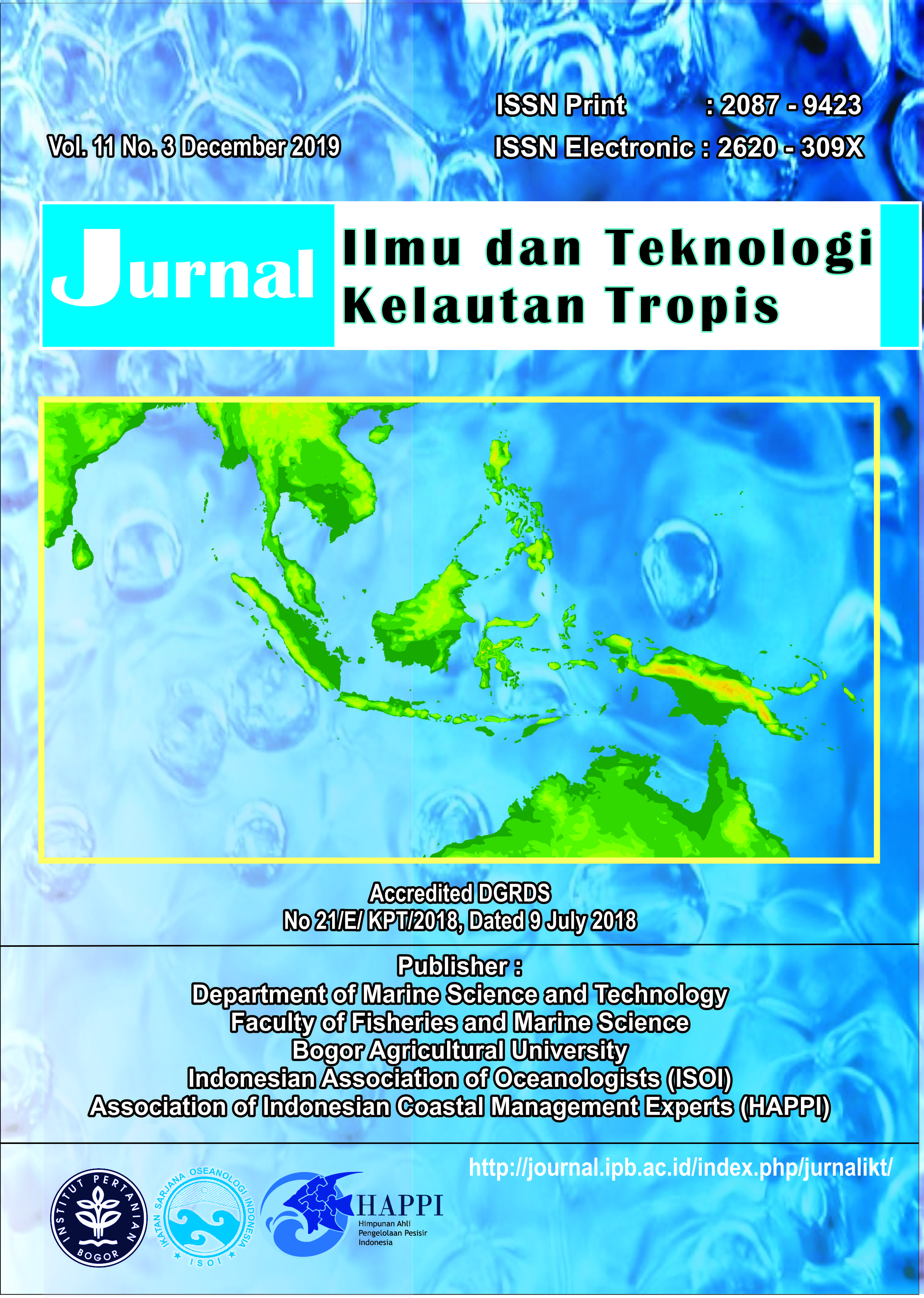MAXIMUM THERMAL TOLERANCE OF TROPICAL MARINE GASTROPODS, Haliotis squamata (Reeve 1846)
Abstract
Data about maximum thermal tolerance in marine organisms are needed to prevent the extinction of species due to global warming. The aim of this study is determining the maximum lethal temperature of Haliotis squamata. In this study, H. squamata were placed in individual containers and exposed to 5 different levels of temperature (27°C, 28.5°C, 30°C, 31.5°C, and 33°C, n = 20). The temperature was raised 0.5°C per 12 hours starting from ambient conditions until target temperatures were reached. The mortality was monitored since animals moved to the individual containers. The results showed that the maximum thermal limit of H. squamata is 31.5°C and 33°C is the lethal temperature, the temperature level with the lowest survival rate (0.15). The IPCC predict that sea surface temperature will raise up to 4°C and monthly average sea surface temperature in Indonesia is around 26 – 31°C. That means in the next century average sea surface temperature could be more than the maximum thermal limit of H. squamata. Thus, early conservation is needed to protect H. squamata.
Authors
This work is licensed under a Creative Commons Attribution 4.0 International License.
Jurnal Ilmu dan Teknologi Kelautan Tropis i is an open-access journal, meaning that all content is freely available without charge to the user or their institution. Users are allowed to read, download, copy, distribute, print, search, or link to the full texts of the articles in this journal without needing to request prior permission from the publisher or the author.
All articles published by Jurnal Ilmu dan Teknologi Kelautan Tropis are licensed under the Creative Commons Attribution 4.0 International License. This allows for unrestricted use, distribution, and reproduction in any medium, provided proper credit is given to the original authors.
Authors submitting manuscripts should understand and agree that the copyright of published manuscripts is retained by the authors. Copyright encompasses the exclusive rights of authors to reproduce, distribute, and sell any part of the journal articles in all forms and media. Reproduction of any part of this journal, its storage in databases, and its transmission by any form or media is allowed without written permission from Jurnal Ilmu dan Teknologi Kelautan Tropis.


